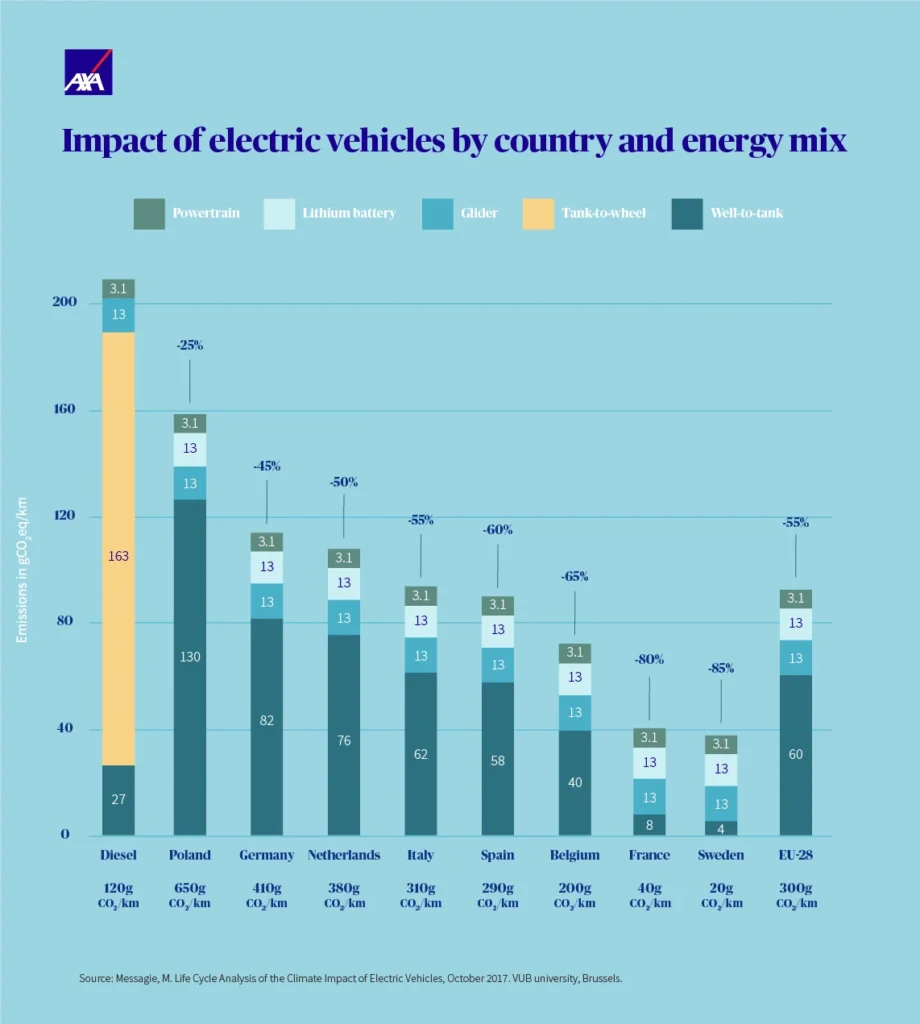The Impact of Electric Vehicles on the Environment is a topic of increasing importance as the world seeks to reduce its carbon footprint and combat climate change. Electric vehicles, or EVs, have the potential to significantly decrease air pollution and greenhouse gas emissions, as they do not rely on traditional fossil fuels for power. This makes them a promising alternative for mitigating the environmental impact of transportation.
One of the most frequently asked questions about The Impact of Electric Vehicles on the Environment is related to the sourcing and disposal of the batteries used in EVs. The materials used in these batteries, such as lithium and cobalt, come with their own environmental concerns, and the proper disposal and recycling of these batteries is crucial for minimizing their impact on the environment. Additionally, the production of electricity for charging EVs also raises questions about its environmental impact, as it may still rely on fossil fuels in some regions. This highlights the need for further development of renewable energy sources to power electric vehicles.
The Impact of Electric Vehicles on the Environment
Electric vehicles (EVs) have been hailed as a more environmentally friendly alternative to traditional gasoline-powered cars. One of the key reasons for this is that EVs produce zero tailpipe emissions, meaning they do not emit harmful pollutants such as carbon monoxide, nitrogen oxides, and particulate matter. This can lead to improved air quality, especially in urban areas where traffic congestion is a major issue. Additionally, the use of EVs can contribute to a reduction in greenhouse gas emissions, as long as the electricity used to charge them comes from renewable sources.
Another environmental benefit of electric vehicles is their potential to reduce dependence on fossil fuels. By shifting away from gasoline and diesel-powered vehicles, there is a potential to decrease the demand for oil and lower the environmental impact of extracting and burning fossil fuels. This can also lead to a decrease in the environmental damage caused by oil spills, drilling, and transportation. Furthermore, the advancement of battery technology for EVs has the potential to support energy storage for renewable sources such as solar and wind power, further reducing the environmental impact of energy production.
Reduced Air Pollution
One of the most significant environmental benefits of electric vehicles is the reduction of air pollution. Traditional gasoline-powered vehicles emit pollutants such as carbon monoxide, nitrogen oxides, and particulate matter, which contribute to poor air quality and can have serious health effects, particularly in densely populated urban areas. By switching to electric vehicles, which produce zero tailpipe emissions, the harmful impact of these pollutants can be greatly reduced, leading to cleaner and healthier air for everyone.
In addition to reducing tailpipe emissions, the use of electric vehicles can also contribute to lower levels of noise pollution. Electric motors are quieter than internal combustion engines, leading to a quieter and more peaceful urban environment. This can have a positive impact on the well-being of residents, as excessive noise has been linked to stress, sleep disturbances, and other health issues. By reducing both air and noise pollution, electric vehicles can help create a more pleasant and sustainable living environment for communities.
Energy Efficiency and Renewable Sources
Electric vehicles have the potential to be more energy efficient than traditional gasoline-powered cars, especially when considering the overall energy use from well to wheel. While internal combustion engines are inherently inefficient in converting fuel energy into propulsion, electric motors are much more efficient in utilizing energy from the electric grid. This increased efficiency can lead to a reduction in overall energy consumption and a lower environmental impact.
Furthermore, the environmental impact of electric vehicles can be further reduced by utilizing renewable sources of electricity for charging. By pairing EVs with renewable energy sources such as solar, wind, and hydroelectric power, the overall carbon footprint of electric vehicles can be significantly minimized. This combination of energy efficiency and renewable sources has the potential to make electric vehicles a key component in transitioning towards a more sustainable and environmentally friendly transportation system.
Challenges and Considerations
While electric vehicles offer numerous environmental benefits, there are also challenges and considerations to take into account. One of the key challenges is the environmental impact of manufacturing the batteries used in electric vehicles. The production of lithium-ion batteries, which are commonly used in EVs, involves resource extraction, energy-intensive manufacturing processes, and potential environmental consequences if not managed responsibly.
Another consideration is the impact of increased electricity demand for charging electric vehicles. If not managed properly, a significant increase in electricity demand could lead to higher emissions from electricity generation, particularly if the electricity comes from fossil fuel-based power plants. However, this challenge can be addressed through the continued expansion of renewable energy sources and the development of smart charging infrastructure to optimize charging times and grid integration.
Policy and Infrastructure Development
In order to maximize the environmental benefits of electric vehicles, supportive policies and infrastructure development are crucial. Government incentives and regulations can play a significant role in promoting the adoption of electric vehicles, such as tax incentives, rebates for vehicle purchases, and investments in charging infrastructure. Additionally, the development of a comprehensive charging network is essential to support the widespread adoption of electric vehicles and ensure convenient access to charging facilities for EV owners.
Furthermore, investment in research and development for battery technology and recycling processes is essential to minimize the environmental impact of electric vehicle batteries. By promoting innovation in battery technology and establishing efficient recycling systems, the environmental footprint of electric vehicle batteries can be reduced, further enhancing the overall sustainability of electric vehicles.
Life Cycle Analysis
When assessing the environmental impact of electric vehicles, it is important to consider the entire life cycle of the vehicle, including manufacturing, operation, and disposal. Life cycle analysis allows for a comprehensive evaluation of the environmental impact of electric vehicles compared to traditional vehicles, taking into account factors such as raw material extraction, vehicle production, energy use during operation, and end-of-life recycling.
By conducting thorough life cycle analyses, it is possible to identify opportunities for improvement in the environmental performance of electric vehicles and to make informed decisions about the most sustainable transportation options. This holistic approach to evaluating the environmental impact of electric vehicles is essential for understanding their overall contribution to reducing emissions and promoting environmental sustainability.
Collaboration and Innovation
The transition to electric vehicles and the associated environmental benefits require collaboration and innovation across various sectors. Collaboration between governments, industries, and research institutions is essential to address challenges such as battery manufacturing, charging infrastructure, and policy development. By working together, stakeholders can leverage their expertise and resources to accelerate the adoption of electric vehicles and maximize their environmental benefits.
Innovation in technology and infrastructure will also play a crucial role in enhancing the environmental impact of electric vehicles. Advancements in battery technology, charging infrastructure, and renewable energy integration can further reduce the environmental footprint of electric vehicles and contribute to a more sustainable transportation system. By fostering a culture of collaboration and innovation, the potential of electric vehicles to mitigate environmental impacts and promote a cleaner, greener future can be fully realized.
| Environmental Impact | Description |
|---|---|
| Reduced Greenhouse Gas Emissions | Electric vehicles produce lower emissions compared to traditional vehicles, especially if the electricity used to charge them comes from renewable sources. |
| Reduced Air Pollution | Electric vehicles produce zero tailpipe emissions, which helps improve air quality and reduce health problems related to pollution. |
| Resource Depletion | The production of electric vehicle batteries requires significant amounts of resources such as lithium and cobalt, which can lead to environmental degradation if not managed properly. |
| Waste Management | The disposal of electric vehicle batteries at the end of their life cycle requires proper recycling and waste management to prevent environmental contamination. |



